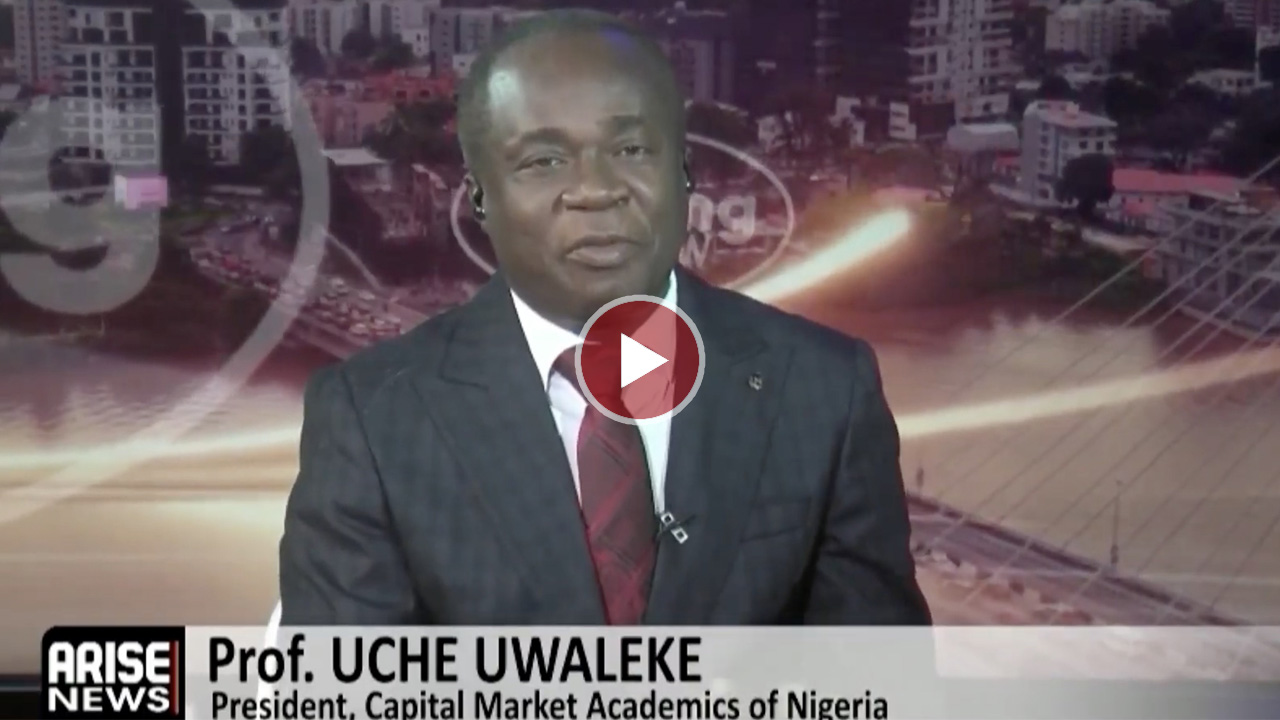
President of the Capital Market Academics of Nigeria, Professor Uche Uwaleke, has said that Nigeria’s ongoing economic reforms are beginning to yield positive results, citing improved macroeconomic indicators, greater investor confidence, and stronger market performance.
However, he cautioned that the government must now ensure that these gains translate into tangible welfare improvements for ordinary Nigerians.
Speaking in an interview on ARISE News on Thursday, Uwaleke said:“I agree with the view that the economy is gradually turning the corner. I subscribe to the view that the reforms are beginning to yield positive results. There is no doubt that the economy today, compared to last year, is in better shape.. at least the numbers say so.”
He explained that inflation has moderated to 18.02 percent, down from over 30 percent, while the foreign exchange market has become more stable, leading to accretion in external reserves and improved current account balances.
“Macroeconomic stability is what is engendering this confidence in the economy, not only from domestic investors but also from international investors,” he said. “We have also seen what has happened in the stock market. The market this year has performed relatively well, returning nearly 40 percent before the recent dip.”
Uwaleke attributed the positive performance to key reforms, including the removal of fuel subsidies, unification of exchange rates, and upcoming tax reforms scheduled to take effect in January.
“These reforms in totality have contributed to the kind of confidence the economy is now enjoying,” he noted. “We have had favourable credit ratings, and this ties into the successful Eurobond issuance, which shows that investors have confidence in the Nigerian economy.”
Despite these achievements, Uwaleke warned that economic growth must become inclusive.
“Yes, the macro numbers are improving, but the welfare of the average Nigerian is another matter. Inflation may be moderating and GDP growing at 4.23 percent, but the World Bank has reported that poverty is rising. Beyond the chest-beating, we must make this growth inclusive so that ordinary Nigerians can feel the impact.”
He added that while the services sector has driven much of the GDP growth, manufacturing and agriculture remain weak and require policy focus to deepen inclusive development.
Addressing concerns about the ₦4.6 trillion single-day loss recently recorded in the capital market, Uwaleke said the market’s volatility was largely due to misinformation about the government’s capital gains tax (CGT).
“The capital market is highly sensitive to information. The losses we saw — over ₦2 trillion earlier and ₦4 trillion just two days ago — were due to uninformed reports about the implementation of capital gains tax,” he said. “After clarifications from the Minister of Finance and the Presidential Fiscal and Tax Reforms Committee, the market rebounded, gaining over ₦2 trillion.”
He explained that institutional investors such as pension funds and real estate investment trusts remain exempt from CGT, and that the “grandfathering” clause means capital gains made before December 31, 2024, would not be taxed, helping to calm investor nerves.
On Nigeria’s continued reliance on Eurobond borrowing, Uwaleke expressed strong reservations, describing it as expensive and risky.
“With respect to Eurobonds, we shouldn’t be resorting to that market as a financing strategy,” he stated. “Eurobonds are commercial debts — expensive compared to other loans. Though they make up about 36 percent of Nigeria’s external debt, they account for over 55 percent of debt servicing.”
He cautioned that the high cost of servicing Eurobonds, coupled with exchange rate risks and rising global interest rates, make them unsustainable in the long term.
“We started with just $500 million in 2011; today we owe $15 billion in Eurobonds. Each time they mature, we simply borrow again to repay. That’s not sustainable. We should de-emphasise commercial debts and prioritise concessional loans from multilaterals and bilaterals — borrowing for productivity, not for consumption.”
Uwaleke concluded by reiterating that while macroeconomic stability and investor confidence are improving, Nigeria must focus on translating growth into real benefits for its citizens through targeted, inclusive policies.
Boluwatife Enome



